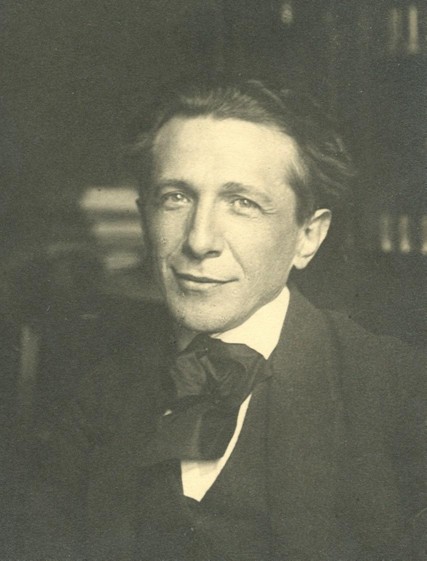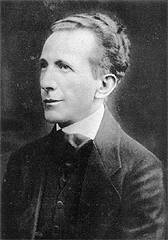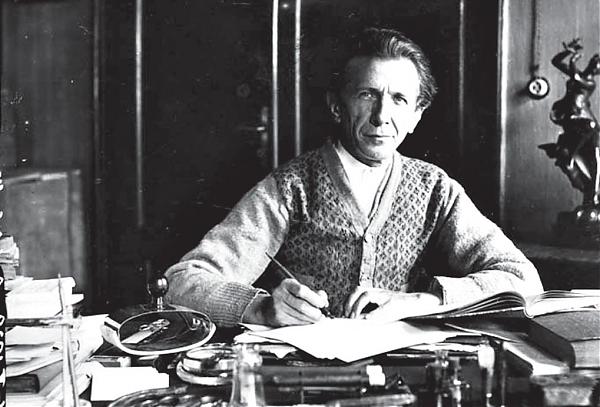<Back to Index>
- Philosopher Imre Lakatos, 1922
- Historian and Writer Milan Šufflay, 1879
- 39th Vice President of the United States Spiro Theodore Agnew, 1918
PAGE SPONSOR


Milan pl. Šufflay (9 November 1879 - 18 February 1931) was a Croatian historian and politician. He was one of the founders of albanology and the author of the first Croatian science fiction novel.
Šufflay was born in an aristocratic family in Lepoglava.That is why he has in his last name pl. (plemeniti in Croatian noble) which is von in German and it is the title of a nobleman in Austria - Hungary. He attended a comprehensive high school in Zagreb and studied at the University of Zagreb, where he got a Ph.D. in history. He was a brilliant student both in high school and at the university. Already during his studies, he spoke French, German, Italian, English, all the Slavic languages, as well as Latin, old Greek and middle Greek. Later in life he learned modern Greek, Albanian, Hebrew and Sanskrit. Tadija Smičiklas considered Šufflay his most gifted student and took him as his assistant when editing Codex diplomaticus of the Academy. Šufflay became a historian of the Balkans, convinced that the history of the Croats can be properly researched only from that perspective. His conviction clashed with the prevailing opinion of Croatian historians that the Croats were representatives of the West as opposed to the Balkans.
He researched the medieval history of Croatia and the history of Albania, for which he would gain international renown. The Hungarian historian Thalloczy, recognizing Šufflay as a great talent that should be on the Hungarian side, brought him to Budapest, where Šufflay worked in the National Museum for a small salary.
Ignoring the proposal of the university senate, ban Rauch appointed him a university professor in Zagreb in 1908. However, when Nikola Tomašić, his distant cousin and enemy, was banned in 1910, Šufflay had to leave the university. In early 1915 he was drafted, although university professors were exempt from military duty. He was soon released because of illness and he wrote his most important works in that period.
In the new state, the Kingdom of Serbs, Croats and Slovenes, he was arrested for high treason and charged with spying for a foreign power together with Ivo Pilar, another Croatian historian. Šufflay was sentenced to three years and six months in prison. The reaction to the sentence was stronger abroad than in Croatia, as scientific colleagues from numerous countries tried to obtain his release, but without success. He did his time in the Mitrovica prison. After serving over half of his sentence, he was released from prison and returned to his scientific work.
He also wrote the first Croatian science fiction novel, On the Pacific in 2255. Therefore, he is considered the founder of the Croatian SF literature.
In 1924 Šufflay became a member of the leadership of the Pure Party of Rights, a right wing Croatian political party inspired by the work of Josip Frank, a fervent nationalist. The party had reportedly not managed to win more than a few seats in the 300 strong legislature.
On the request of the Albanian government and the Academy of Sciences in Vienna, he continued the work of Jireček and Thalloczy, editing the 3rd book of Codex albanicus,
an archival collection. After returning from Albania he received a
threatening letter, and then he was attacked several times in the press,
which clearly indicated that the Greater Serbian circles had decided to eliminate him.
The members of the regime organization, Young Yugoslavia, under the royal protection, ambushed him at his doorstep in Zagreb and broke his skull with a hammer, killing him. Then they broke into his apartment and took the manuscript of the 3rd book of Codex albanicus. There was never any investigation about the criminals. The authorities denied any knowledge of the assailants and banned activities related to Šufflay's funeral. The murderers were the police agents Belošević and Zwerger, who fled to Belgrade. All the later attempts of the Banovina of Croatia to have them extradited were fruitless.
Albert Einstein and Heinrich Mann sent a letter to the International League for Human Rights in Paris appealing
to the global cultural public to protest against the murder of Milan
Šufflay appealing for protection of Croat scientists from the
Yugoslavian regime. However, it did not prevent further political
murders of Croats in Yugoslavia. Curiously, they named one "Nikola
Jukitsch" as the murderer, which contradicts the local findings about
Branko Zwerger.
In 1928, when Stjepan Radić was assassinated in the Yugoslav parliament, a year before king Alexander would establish his dictatorship, Šufflay wrote Hrvatska u svijetlu svjetske historije i politike (Croatia in the Light of World History and Politics). He wrote that the Croatian people were suffering under the Yugoslav dictatorship and that Croatia had to free itself. He claimed that the border between the Western and the Eastern civilization lay on the Drina river, the "destined borderline on the Drina river on which the mighty Roman Empire snapped into two... a border both spiritual and cultural".
- The Croatian people have passed through the Roman - Western retort, while the Serbian people passed through the Byzantine - Turkish. Therefore the psyche of the two peoples is essentially different, even if the languages are similar. Unification of the two peoples would mean neutralization and careful constraining. To centralize here would mean to make Croatia a guinea pig for vivisection experiments. It is my thesis that the Croatian nation, as a citizen of the great empire of the western civilization, has the right to raise its voice against any oppression.
- Those who know history know that the Yugoslav idea has no dynamics. It is nothing compared to the mighty Croatian idea. In Croatia, the Yugoslav idea is a shallow wreckage under which the Croatian national volcano boils; only a subtle push is necessary to make it erupt.
- To me personally, as a philosopher and an open - minded Croat, it is the same whether I sit shackled at the court or a penitentiary, or whether I get out into the false freedom hiding the larger dungeon in which – thank God, only temporarily! – the Croatian nation is suffering!
His prophetic words about the unfortunate unification were fulfilled only recently, when the Serbo - Montenegrin aggression on Croatia started in early 1990s and because no common solution could be found, communist Yugoslavia dissolved.
